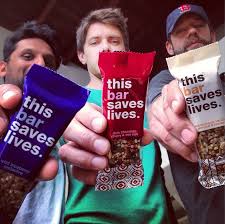Home
About Us
Children Youth and Families At-Risk Sustainable Community Project
by: Iola BonggayThe National Institute of Food and Agriculture, otherwise known as NIFA, is a federal government agency operating within the United States Department of Agriculture. The creation of NIFA was mandated in the Food, Conservation, and Energy Act of 2008.
|
|
The efforts of NIFA are designed towards the creation of research and technological innovations that will improve American agriculture, thereby making it more productive and environmentally sustainable.
The The National Institute of Food and Agriculture, in close cooperation with the United States Department of Agriculture, has established a funding opportunity to support the Children Youth and Families At-Risk Sustainable Community Project (CYFAR).
The Children Youth and Families At-Risk Sustainable Community Project revolves around the notion of partnering with Land-Grant Institutions and Cooperative Extension Systems in order to create efficient, community-based education programs that will enable the youth who are potentially at risk of not meeting their basic human needs which they will eventually need in leading a productive, positive and contributing life.
CYFAR has outlined two strategic objectives that will guide them in materialization of their goals:
(continued...)
Children Youth and Families At-Risk Sustainable Community Project
Page 2
About The Author
Iola Bonggay is an editor of TopGovernmentGrants.com one the the most comprehensive Websites offering information on government grants and federal government programs. She also maintains Websites providing resources on environmental grants and grants for youth programs. |
Additional Resources
category - Minority Grants
Minority Business Enterprise Centers for Minority-Owned Businesses
Department of Agriculture: Technical Assistance and Training Grant
Department of Agriculture: Value Added Producer Grants
Ethical Schools Project in Peru
Follow @topgovtgrant
Social Entrepreneurship
Spotlight
A Bar That Saves Children’s Lives

Ryan Devlin, Todd Grinnell and Ravi Patel have traveled to Africa on a humanitarian trip a few years back, encountering children suffering from severe malnutrition get healthy through Plumpy’Nut®.
